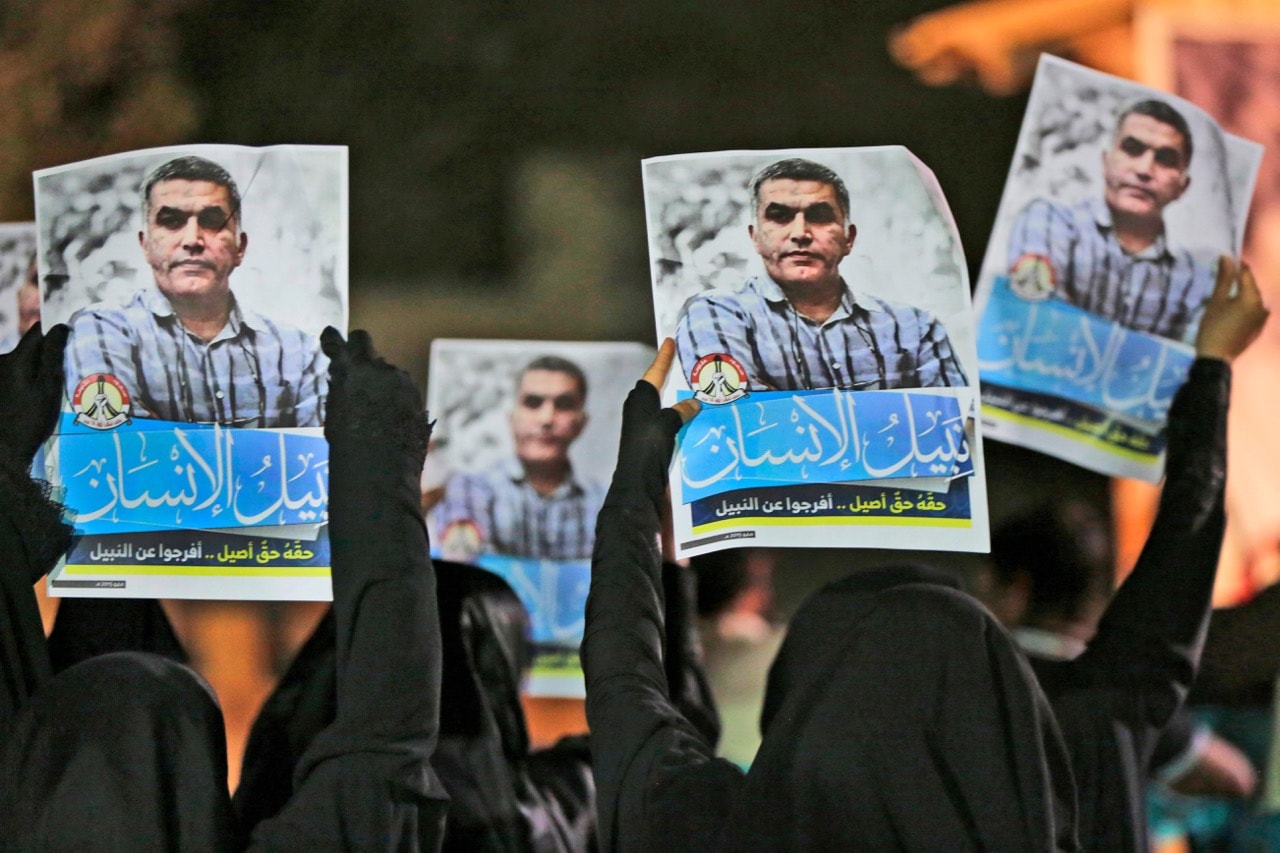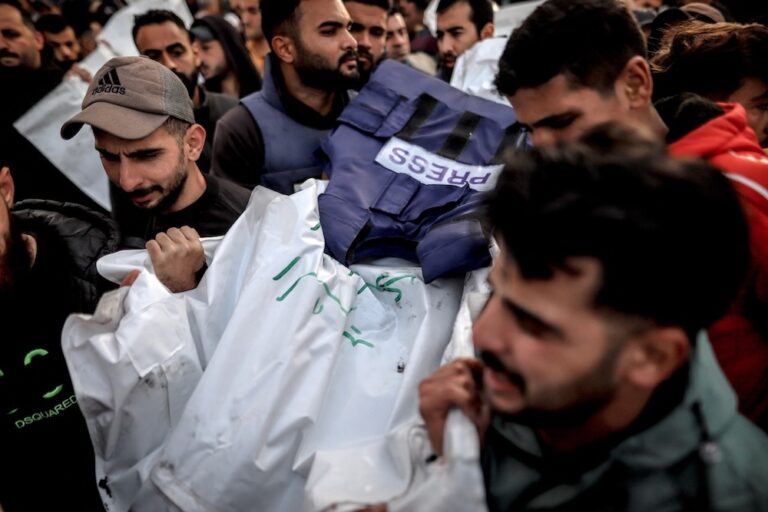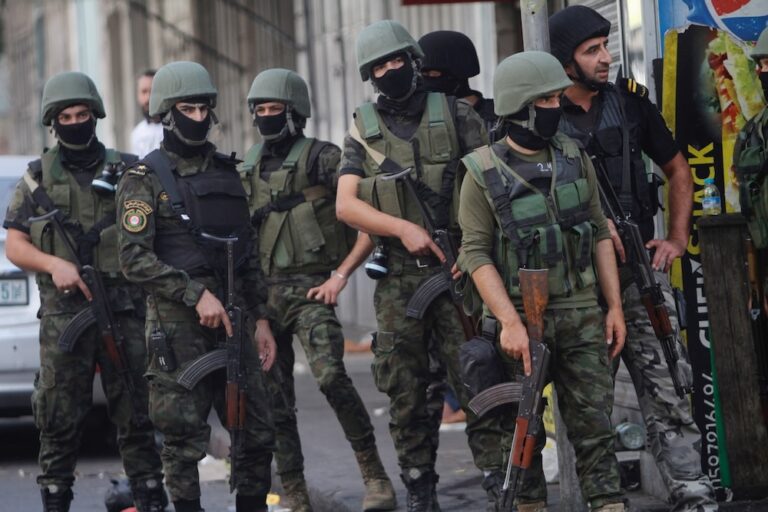Our Middle East and North Africa round-up spotlights Bahrain's first military trial of civilians since 2011, a growing crackdown on members of Egypt's LGBTQI+ community, and a new player restricting Iranians’ internet access.
A dark week in Bahrain
In the past week alone, Bahraini authorities carried out a number of human rights abuses that pushed it front and center among the region’s worst free expression violators. On 23 October 2017, as the international human rights community cautiously welcomed the release on bail of four Bahraini activists, including women’s rights defender Ebtisam Al-Saegh, Bahrain embarked on the first military trial of civilians since 2011. Four defendants facing political charges appeared before a military court and none had been allowed to meet with their lawyers since their arrest. On 30 October, journalist Mahmoud Al-Jazeeri was sentenced to 15 years in prison on terrorism charges and stripped of his nationality.
On 25 October, a Bahraini court not only postponed yet again a hearing for imprisoned human rights defender Nabeel Rajab, but transferred him from a Ministry of Interior detention center back to Jau prison, the Kingdom’s main long-stay male detention center. According to ADHRB and Index on Censorship, he is being held away from other political prisoners, had his head forcibly shaved, and was subjected to a night raid in which all his belongings were confiscated.
While ill-treatment in Bahraini prisons has been, and continues to be, well documented, human rights groups this month have focused some of their efforts on revealing the level of harassment targeting the family members of political detainees and opposition activists in exile. Three members of the family of exiled activist Sayed Alwadaei have been sentenced to three years in prison after being arbitrarily arrested in March following his appearance before the 34th session of the Human Rights Council in Geneva. They were forced to sign confessions and were charged under Bahrain’s terrorism law.
In what ADHRB deemed a sign “that the government has no intention of changing course” in its crackdown on civil society, on 26 October, a Bahraini appeals court confirmed the dissolution of the country’s last major opposition group Wa’ad.
Pushing Egypt into the international limelight
In Egypt, despite an ever more perilous national security situation, authorities continued to direct their efforts towards cracking down on journalists, activists, oppositions figures, and increasingly as of September, members of the LGBTQI+ community.
As President Abdel Fattah El-Sisi began his official visit to France on 23 October, regional and international human rights groups, including Reporters Without Borders and the Cairo Institute for Human Rights Studies (CIHRS), grasped the opportunity to shed light on his regime’s abuses. On 20 October, groups sent a letter to French President Emanuel Macron, asking him to condemn Egypt’s repressive policies and to push for democratic reform. Four days later, RSF staged a demonstration in Paris denouncing Egypt’s “disastrous press freedom record”. And earlier on 10 October, during a ceremony at the University of Geneva, Egyptian rights defender Mohammad Zaree was awarded the prestigious Martin Ennals Award for Human Rights Defenders, an award that aims to provide protection to human rights defenders through international recognition. Zaree, who is on trial in Egypt on serious charges for his work with CIHRS, could not personally attend the ceremony as he has been under travel ban since May 2015.
Iran’s hardliners not alone in restricting citizens’ access to the internet
Tech companies and popular social media platforms have been making Iranians’ already severely restricted access to the internet even harder in three main ways identified by Global Voices and the Electronic Frontier Foundation this month.
According to EFF, in tandem with the current US government’s more confrontational attitude towards Iran, American tech companies have also had a change of heart. “On August 24th, Apple began removing apps developed and targeted at Iranians from its store, including Iran’s popular online store Digikala, Iranian ride-hailing app Snapp, and the online food delivery service Delion. In September, Google followed suit. Iranian technologists, having built tools and services for their own users, suddenly found themselves shut down and cut off from their customers by the actions of American companies.”
On a related note, IFEX recently interviewed the founder of a new app that offers Iranian women a way to have more control over their sexual health and their rights. The Hamdam app has already been downloaded over 165,000 times since it was launched. It is not unlikely that these actions by US tech companies could affect similar initiatives.
Global Voices reports that Iranian human rights activists and dissidents who are regularly targeted with harassment and threats on Facebook, Twitter, and Instagram have found no solace in the social media platforms’ various protection mechanisms. “Over the course of 2016, I interviewed 20 prominent Iranian human rights activists, artists and journalists who described challenges they faced in mitigating social media harassment and hacking,” writes Simin Kargar. “The majority of these interviewees had struggled to get the attention of social media companies when they most needed help, and several of them – including [popular Iranian musician Shahin] Najafi – could not convince the companies to verify their accounts.”
Other social media platforms explicitly prohibit Iranians from using their platforms. When, on 17 October 2017, Soundcloud and Spotify music streaming services were suddenly unblocked in Iran, Iranian social media was filled with celebratory posts. But, according to Mahsa Alimardani, “the change doesn’t bring much value for would-be Spotify users, who are still unable to register with the website, due to Spotify’s internal corporate rules.”
Clamping down on online expression and press freedom in Palestine: A team effort
While Israel has been surveilling Palestinian social media accounts at an unprecedented scale since October 2015, the Palestinian Authority has recently passed an Electronic Crimes Law that has been deemed so repressive, Palestinian civil society groups, including MADA, have embarked on several campaigns this month calling for its repeal.
In a well-documented phenomenon seeking to rattle the Palestinian press, Israeli authorities conducted a series of early morning raids on 18 October targeting media companies in several West Bank cities. According to the Committee to Protect Journalists (CPJ) and the Palestinian Center for Development and Media Freedoms (MADA), Israeli forces, in cooperation with the Israeli home security service Shin Bet, confiscated documents and broadcast equipment, and closed the media companies down.
A tragic month for Kurdish journalists in Iraq and Syria
According to CPJ, in Iraq, in regions currently or until recently under the control of the Kurdistan Regional Government, attackers stabbed to death a journalist, a mob attacked two TV crews, and Iraq’s media regulator ordered two stations to cease broadcasting.
In Syria, according to CPJ and the Gulf Center for Human Rights, two Kurdish journalists were killed by a suicide car bomb on 12 October in the eastern village of Abu Fas while they were covering civilian displacement. A third journalist was also injured in the attack carried out by two people affiliated with ISIS.
In Brief
In Algeria this October, two bloggers have gone on hunger strike to protest their imprisonment simply for expressing their right to freedom of expression, and a leading news website has been partially blocked since 5 October.
In Tunisia, according to the Arabic Network for Human Rights Information (ANHRI), security forces dispersed a teachers’ protest on 10 October using excessive force. A number of protesters suffered injuries. And on 12 October, authorities blocked an online news site without judicial notice. Authorities did not provide a reason for the decision. The news site in question belongs to a prominent politician and media personality known to be critical of the president.
In Morocco, sentences against peaceful protesters from the restive Rif region along with the expulsion of foreign journalists and a politically motivated sentence against the head of Morocco’s journalists syndicate (in which he was fined 20,000 dirhams ($US 2000) on defamation charges this month), reveal the Moroccan authorities’ intention to suppress all critical voices regardless of the legality of their actions.
In Yemen, as a war with no end in sight rages on for a third year, an already risky situation for journalists is becoming even riskier. They are increasingly being subjected to threats, attacks, kidnappings, and slander campaigns.
1) These threats against @mohammedalqadhi are one more example of how press freedom is crumbling in #Yemen amid war. #ProtectYemenPress https://t.co/gsQMZSmWWt
— CPJ MENA (@CPJMENA) October 31, 2017
On 5 October, the Supreme Court of Oman issued a final ruling in the case of the Azamn newspaper, an independent newspaper that covered corruption in the country. The ruling, which shuts the newspaper permanently, ended its long-standing fight to re-open.



